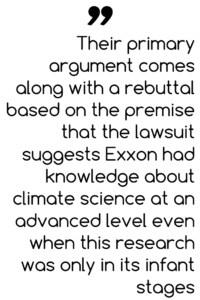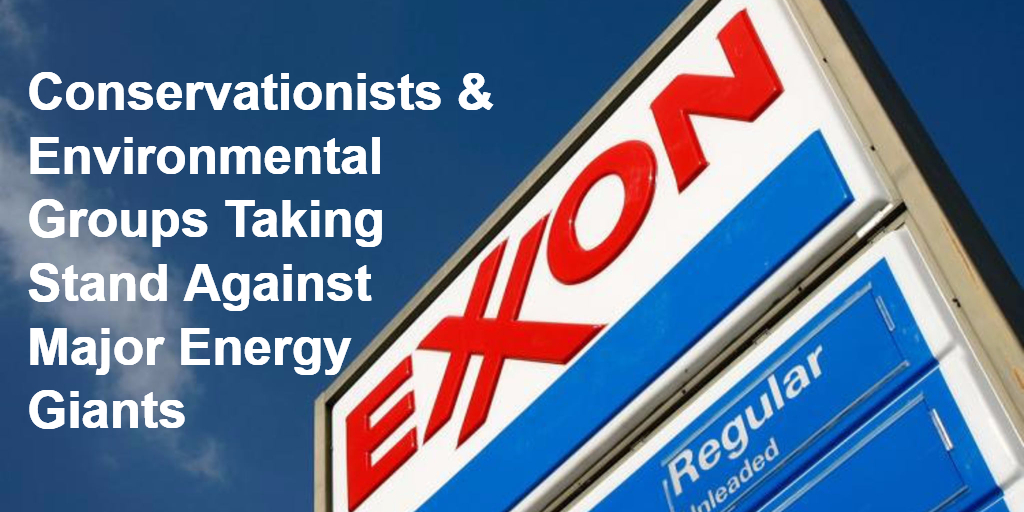With so much recent attention on global warming, pollution in the water supply, and other environmental threats in the United States, conservationists and environmental groups are taking a bigger stand against major energy giants. One of the more recent actions taken is by the Boston-based Conservation Law Foundation (CLF), which is pressing for $100 million or more in civil penalties against ExxonMobil by using the guidelines set forth by the federal Clean Water Act. On September 29th, the group filed a massive lawsuit in district court, claiming Exxon is responsible for decades of contaminating pollution of Mystic River. The lawsuit filed also claims ExxonMobil blatantly disregarded the predicted threats of climate change, even though some of their own scientists researched enough to connect the dots between carbon dioxide emissions, fossil fuels, and climate change.
The lawsuit points out one of Exxon’s own terminals in an area prone to sea-level rise.
Even one of ExxonMobil’s own terminals, Everett Terminal in Massachusetts, is located in an area where storm surge and rising sea level due to climate change is a major threat, according to some of the claims in the lawsuit documentation. This specific terminal is responsible for the storage and transportation of diesel, gasoline, and even oil. If the terminal is damaged by rising sea water, and even bigger pollution issue could come into play with the Mystic River and its conjoining tributaries. CLF has claimed flood maps show this terminal could be at risk with even moderate rainfall amounts. Yet, Exxon has refused to relocate or re-engineer the facility to protect against such an impending threat.
Exxon is rebutting the claims in the lawsuit through media statements.
 Exxon is claiming they will fight these claims in the lawsuit and the company spokesperson, Todd Spitler even goes as far as saying the suit is merely an attempt to draw attention to a political agenda. Their primary argument comes along with a rebuttal based on the premise that the lawsuit suggests Exxon had knowledge about climate science at an advanced level even when this research was only in its infant stages. Exxon is also suggesting discredibility of the lawsuit because of the fact that Exxon has a prior history of working with the UN Intergovernmental Panel on Climate Change and the Department of Energy in support of research into the matter.
Exxon is claiming they will fight these claims in the lawsuit and the company spokesperson, Todd Spitler even goes as far as saying the suit is merely an attempt to draw attention to a political agenda. Their primary argument comes along with a rebuttal based on the premise that the lawsuit suggests Exxon had knowledge about climate science at an advanced level even when this research was only in its infant stages. Exxon is also suggesting discredibility of the lawsuit because of the fact that Exxon has a prior history of working with the UN Intergovernmental Panel on Climate Change and the Department of Energy in support of research into the matter.


